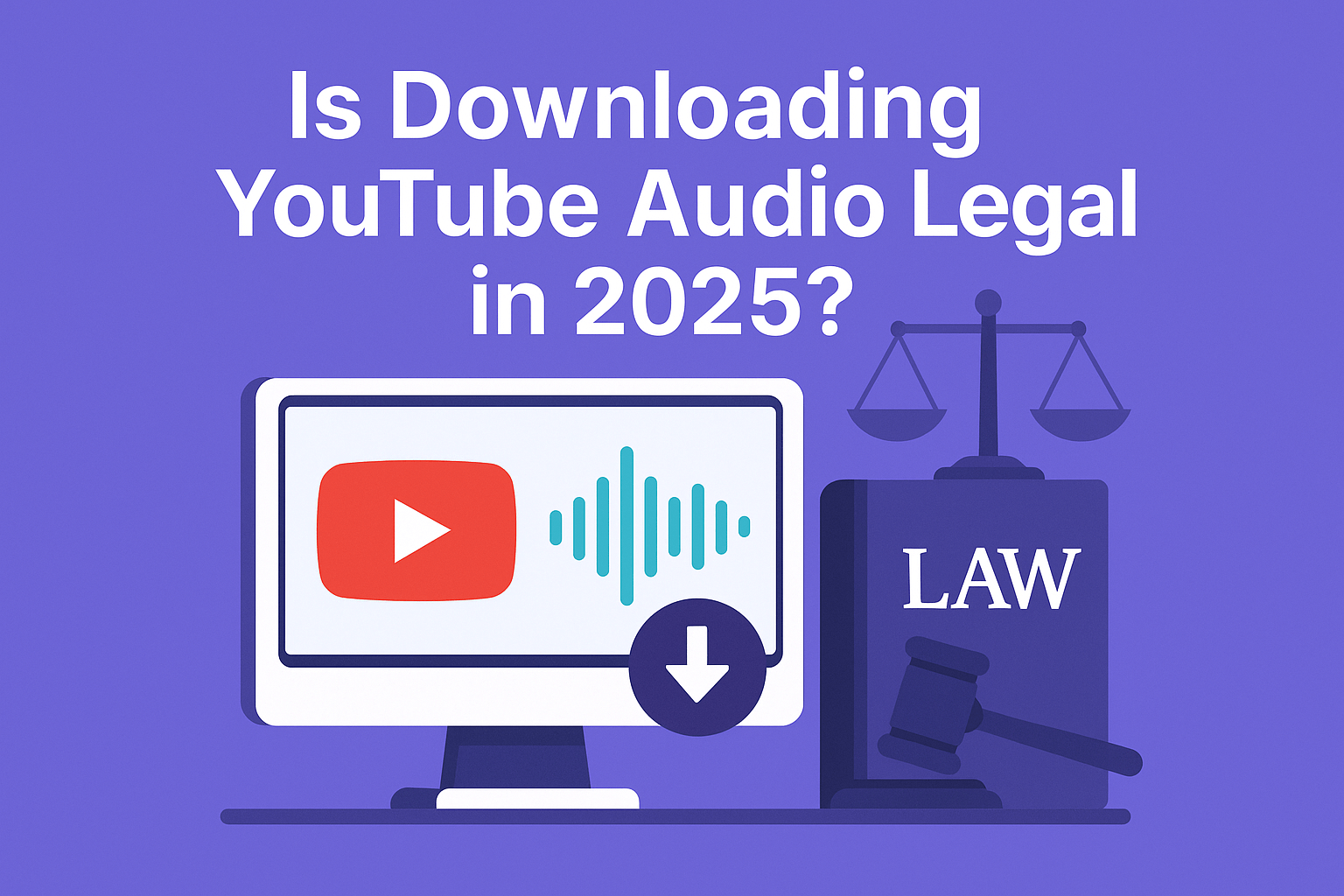There is a lot of confusion about the legality of downloading YouTube audio. Users think that it is completely legal to extract MP3 or WAV files from any video if there are so many online converters. Nevertheless, the significant legal and moral points are important here. This blog looks about what is allowed, what is forbidden, and the ways to be in the right.
What Do YouTube’s Terms Say?
YouTube’s Terms of Service explicitly prohibit downloading content unless:
- You use a feature that is available from YouTube directly (like YouTube Premium)
- You have the consent of the content owner
- The content is public domain or under a license that permits downloads (e.g. Creative Commons)
In other words, it is still against YouTube’s policies, even if there is no intention to infringe, using tools of third parties to download copyrighted materials is unauthorized, hence, it may be considered copyright infringement.
What Is Considered Legal Downloading?
Not all conversions are illegal. You can legally download YouTube content if:
- You uploaded the content yourself
- The video is under a Creative Commons license
- The content is in the public domain
- You have received explicit permission from the content creator
Educational videos, royalty-free music, or your own tutorials fall under this category.
Understanding Fair Use
Fair Use is a legal doctrine that allows limited use of copyrighted material without permission in certain cases like:
- Commentary
- Criticism
- Teaching
- News reporting
However, Fair Use is complicated and doesn’t automatically make downloading audio legal. Courts evaluate fair use based on purpose, nature, amount used, and impact on market value.
What Happens If You Violate Terms?
Using download tools improperly could result in:
- Termination of your YouTube account (if you’re logged in)
- Copyright takedown notices
- Legal action in extreme cases
That’s why it’s critical to ensure you’re only downloading content you are legally entitled to.
How to Stay Safe and Compliant
- ✅ Download only your own videos or freely licensed content
- ✅ Read the video’s description or license before converting
- ✅ Use converters like yttomp3tool.com for personal and lawful use only
- ✅ Avoid commercial distribution of downloaded files
Can You Get in Trouble for Just Listening Offline?
Most legal concerns are aimed at redistribution, commercial use, or mass downloading. Listening to a converted audio file privately is less likely to result in issues if the source material is not protected by copyright or was legally downloaded.
YouTube Premium as a Legal Alternative
If you want to listen offline without worrying about legality:
- Subscribe to YouTube Premium, which allows legitimate downloading within the app.
- Use YouTube Music for audio playback and playlists.
These options are 100% compliant with YouTube’s policies.
Myths vs Facts
| Myth | Fact |
|---|---|
| All YouTube downloads are illegal | Only unauthorized copyrighted downloads are illegal |
| It’s fine if I don’t sell it | Personal use is safer, but still must follow copyright rules |
| Downloading music = piracy | Not always – depends on license and permissions |
Final Thoughts
Downloading YouTube audio can be legal if you’re careful. Make sure you understand the source content, its licensing, and the limits of fair use. Tools like yttomp3tool.com are designed to help users make informed, ethical choices but responsibility lies with the user.
